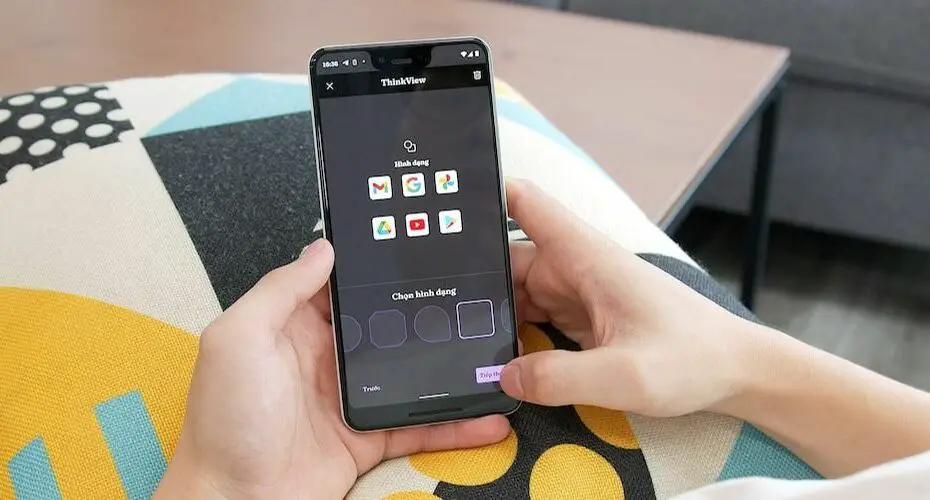People who look at their phones too much may become addicted to the device and may develop problems like social withdrawal, decreased concentration, and decreased productivity. Some people also develop problems like obsessive compulsive disorder and anxiety from looking at screens all the time.
Get started here
If you look at your phone too much, you may become addicted to the phone and lose interest in other activities. This can lead to problems like not being able to focus at school or work, and developing social anxiety. Additionally, looking at your phone can also lead to problems with your mental health, such as depression or anxiety.
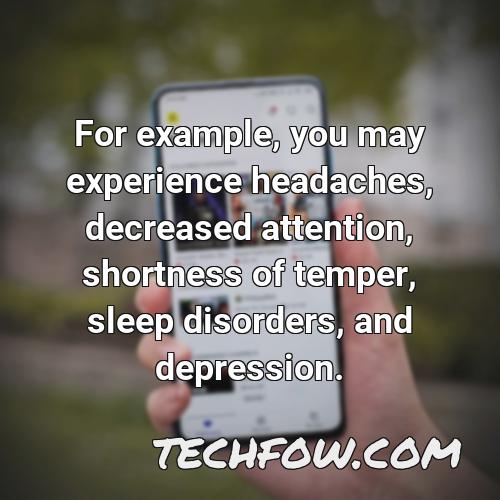
Can You Damage Your Eyes by Being on Your Phone Too Much
There are many dangers associated with being on your phone too much. One of these dangers is that it can damage your eyes. When you are on your phone, you are exposed to blue light. Blue light is not as powerful as UV light, but it is still harmful. Prolonged exposure to blue light can damage your retina, which can cause vision problems. So, if you are concerned about your eyesight, be sure to put your phone away when you are not needed.
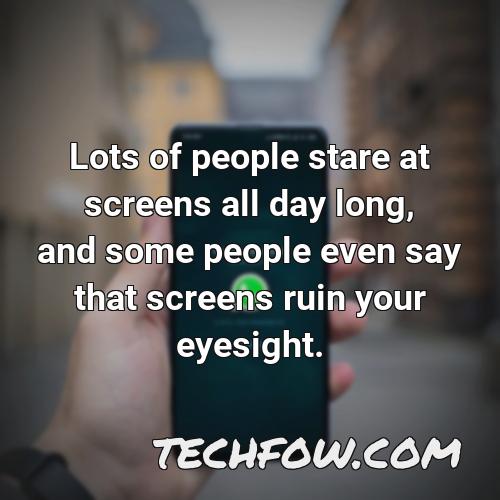
Do Screens Ruin Eyesight
Lots of people stare at screens all day long, and some people even say that screens ruin your eyesight. But experts say that this isn’t really true. In fact, looking at screens can cause some side effects, but they’re not really dangerous.
The biggest problem with screens is that they can cause computer vision syndrome. This is a condition where you start to have problems seeing things on screens. You might start to see things in a blur, or you might start to see things that are really close up.
Experts say that you can avoid this problem by keeping your screen distance low. You should also make sure that you’re not staring at the screen for too long. And finally, you can use some eye masks to help you avoid getting computer vision syndrome.
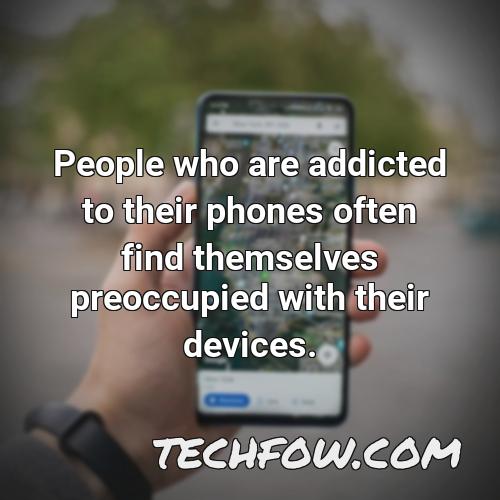
Can Phones Cause Vision Loss
Smartphones have become a common part of life for many people. However, long-term use of smartphones may increase the likelihood of ocular symptoms. These symptoms can include myopia (a vision problem caused by the use of a device that makes distant objects look smaller), asthenopia (a vision problem caused by the use of a device that makes close objects look smaller), and ocular surface disease (a problem with the surface of the eye). These symptoms can be especially common in children. Therefore, regulating use time and restricting the prolonged use of smartphones may prevent ocular and visual symptoms.
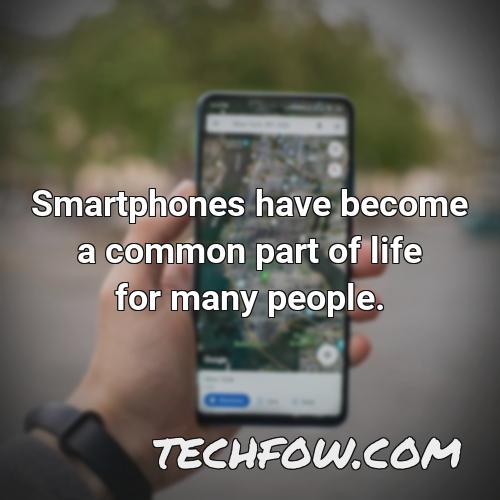
What Happens if You Use Phone for 10 Hours a Day
If you spend 10 hours a day using your cell phone, it can lead to many problems. For example, you may experience headaches, decreased attention, shortness of temper, sleep disorders, and depression. You might also have problems with your phone’s battery life, because it’s using up a lot of energy. I used to spend 9 hours a day on my phone, but now I only use it for 2 hours. This has helped me a lot, because I’ve been able to avoid many of the problems that come with using my phone for 10 hours a day.

How Do You Know if Youre Addicted to Your Phone
People who are addicted to their phones often find themselves preoccupied with their devices. They may find themselves checking their phone while doing mundane tasks or if there are a few moments of waiting for something such as the microwave or in line at a store.
Unable to quit.
Withdrawal.
Shame.
Loss of control.
People who are addicted to their phones often find that they can’t quit thinking about their devices. They may find themselves feeling restless or anxious if they’re not able to check their phone. When they do have access to their phones, they may feel a sense of relief or pleasure.
People who are addicted to their phones often find that they lose control over their devices. They may find themselves spending more and more time on their devices and may be unable to stop. They may also find that they are no longer able to focus on anything else.
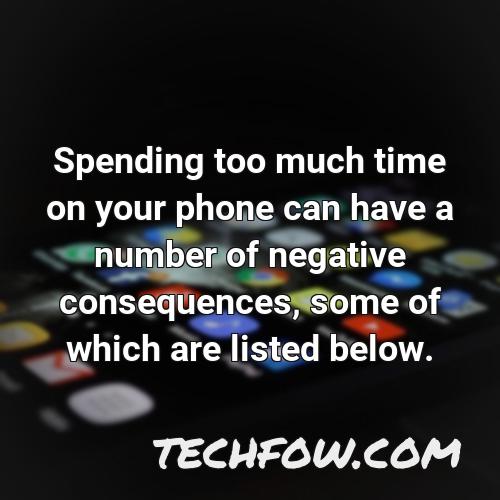
What Is Average Phone Screen Time
An average person spends around three hours and fifteen minutes a day on their phone. This number can vary depending on a person’s age, sex, and phone type, but it is a good estimate for the average person. Screen time can be divided into two categories: phone time and screen time. Phone time is time spent on the phone itself, excluding time spent texting or talking on the phone. Screen time is time spent looking at or using the phone’s screen, including time spent texting or talking on the phone.
Phone time and screen time are not the same thing. Phone time includes time spent talking on the phone, while screen time includes time spent looking at the phone’s screen. This means that phone time and screen time are not the same thing, and they are not the same amount of time. People spend around three hours and fifteen minutes a day on their phones, which is a good estimate for the average person. This number can vary depending on a person’s age, sex, and phone type, but it is a good estimate for the average person.
People spend around three hours and fifteen minutes a day on their phones, which is a good estimate for the average person. This number can vary depending on a person’s age, sex, and phone type, but it is a good estimate for the average person. phone time and screen time are not the same thing. Phone time includes time spent talking on the phone, while screen time includes time spent looking at the phone’s screen. This means that phone time and screen time are not the same thing, and they are not the same amount of time.
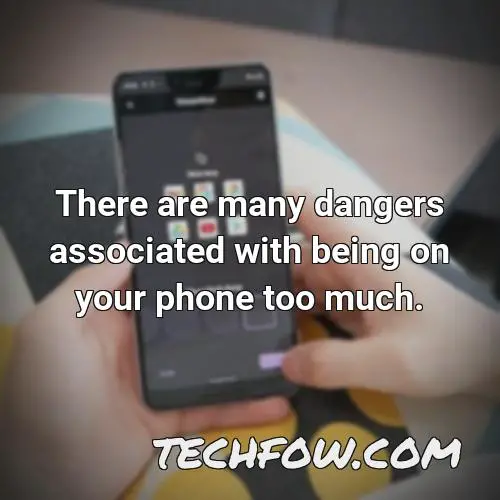
What Happens if You Spend 12 Hours on Your Phone
If you spend 12 hours on your phone, you are not just wasting your time, but you are also disrupting your social life, your mental health, and your physical health. Spending too much time on your phone can have a number of negative consequences, some of which are listed below.
First and foremost, spending 12 hours on your phone can severely disrupt your social life. Instead of spending time with friends or family, you are instead spending your time on your phone scrolling through social media or playing games. This can have a negative impact on your mental health, as it can lead to depression, anxiety, and other mental health disorders. In fact, one study found that people who spend more than five hours a day on their phones are significantly more likely to experience depression.
Second, spending 12 hours on your phone can have a negative impact on your physical health. For example, spending too much time on your phone can lead to insomnia. In addition, spending too much time on your phone can also lead to a decrease in your immune system, which can make you more susceptible to physical health problems.
Lastly, spending 12 hours on your phone can have a negative impact on your brain chemistry. For example, spending too much time on your phone can lead to a decrease in your cognitive function. In addition, spending too much time on your phone can also lead to a decrease in your memory and your ability to learn.
Overall, spending 12 hours on your phone is not just a waste of your time, but it is also a waste of your resources. If you are spending too much time on your phone, it is important to take measures to change that. By reducing your time on your phone and focusing on other activities, you can improve your mental health, your physical health, and your brain chemistry.

How Much Time Should a Student Use Phone
When it comes to screen time, there is no one-size-fits-all answer. Every person is different, and every child’s screen time needs will be different. While 2 hours of screen time on school days is acceptable, many parents and educators feel that 3 hours is a better limit during the weekend.
There are many reasons why screen time can be harmful. Excessive screen time can have negative effects on both the physical and mental health of an individual. For example, screen time can lead to problems with sleep and can be damaging to the brain. In addition, screen time can create a disconnection between an individual and the world around them. This can lead to problems with socialization and communication.
While it is important to remember that screen time is not the only way to spend time, it is important to find an appropriate balance. It is important to limit screen time to 2 hours on school days, but it is also important to allow for a reasonable amount of screen time during the weekend.
How Do I Reduce the Time I Spend on My Phone
Social media has become an integral part of our lives. We use it to communicate with our friends, to stay up to date on the news, and to see what our favorite celebrities are up to. However, social media can also be addictive. In fact, many people spend more time on their phones than they do on actual social interactions.
There are a few ways that you can reduce the time you spend on your phone. One way is to set limits on how much time you spend on social media each day. You can also try to take breaks from your phone. For example, you can spend half an hour on your phone and half an hour on your computer. You can also set up a text auto-responder so that you will respond to text messages within a certain time limit.
Overall, reducing the time you spend on your phone is a challenge. However, by using some of the strategies listed here, you can start to reduce the amount of time you spend on your phone.
Does Night Mode Help You Sleep
According to a study carried out by Brigham Young University (BYU), Apple’s Night Shift and Android’s Night Mode features do nothing to help you fall asleep better. Both features change the color of the screen to make it less bright, but this does not seem to have a significant impact on how well people sleep. The study found that people who turned off their screens at night reported an increased amount of sleep, regardless of whether or not they had their phone set to use Night Mode or Night Shift. It is possible that people who are more comfortable sleeping in a dark room are more likely to benefit from using Night Mode or Night Shift, but this was not found to be the case in the study. Overall, it seems that these features do not have a significant impact on how well people sleep, and people are better off just leaving their screens off at night.
To conclude
If you look at your phone too much, it may lead to problems like social withdrawal, decreased concentration, and decreased productivity. If you develop problems like obsessive compulsive disorder or anxiety from looking at screens all the time, it may be best to try to limit your phone use.

